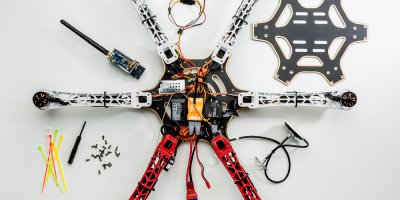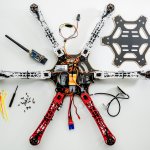
Agriculture operations to see changes and advancement with the employment of drone technology. Source: Shutterstock
Here’s why the agriculture industry needs drone technology
AGRICULTURE plays a key role in ensuring food security and is essential to any country’s economy.
Unfortunately, agricultural activities are often slumped by weather conditions, air quality, soil chemical imbalance, and lack of manpower. Even more worrying, most of these issues are beyond the control of man and have to be addressed immediately.
With new developments and research investments in drone technology, however, it seems like better days are approaching.
Although drones are not relatively new, they serve as a very effective tool in the arsenal of farmers and provide unlimited possibilities in modern farms.
Drones, equipped with artificial intelligence, flight engineering, analytical abilities, and robotic solutions, help support a number of use cases.
First and foremost, these drones can receive and interpret geographical data that is collected from sensors in the ground and “spray” nutrients as required. For example, information detailing any deficiency in soil composition, water level, or nutrient content can alert the drones to compensate accordingly.
Not only that, the drones can distribute fertilizers optimally to avoid wasting resources. A great solution to what once was an issue that required scientific knowledge and high precision skills.
Next, the employment of drone technology can regulate the transportation of produce to stores or stock houses. This, in turn, will save farmers the time and labor that most can’t afford in the first place.
Heavy loads and long-distance travel have always been a hindrance to agricultural activities, costing them valuable man-hours and capital. Leveraging drones as a medium of transportation will also substitute the lack of manpower in farms and plantations.
Further, farming jobs will also become more attractive to youths in the future as tedious and physically demanding aspects of the job are taken over by drones. Hence, drones are changing the image of agricultural operations and eliminating a huge part of hard-labor from the job.
Evidently, drone technology is not only solving existing problems in agriculture, but also improving the nature of the job and adding value to the industry.
Moreover, with its aerial and landscape accessibility, drones can generate clear images and map out suitable farming locations within a definite land perimeter.
When we look at the bigger picture, drones are helping farmers and plantation owners increase productivity, efficiency and production value.
Valuable data can be gathered to better understand the geographical structure of the land and give insights into how farming activities can be carried out despite undesirable circumstances.
Most importantly, trained and steady employment of the technology will not only guarantee a more fast-paced nature of farming, but it will also increase production value and nurture market growth. Drones, in the future, will definitely find more use cases in agriculture — and help ensure food security across the world.
READ MORE
- Ethical AI: The renewed importance of safeguarding data and customer privacy in Generative AI applications
- How Japan balances AI-driven opportunities with cybersecurity needs
- Deploying SASE: Benchmarking your approach
- Insurance everywhere all at once: the digital transformation of the APAC insurance industry
- Google parent Alphabet eyes HubSpot: A potential acquisition shaping the future of CRM


